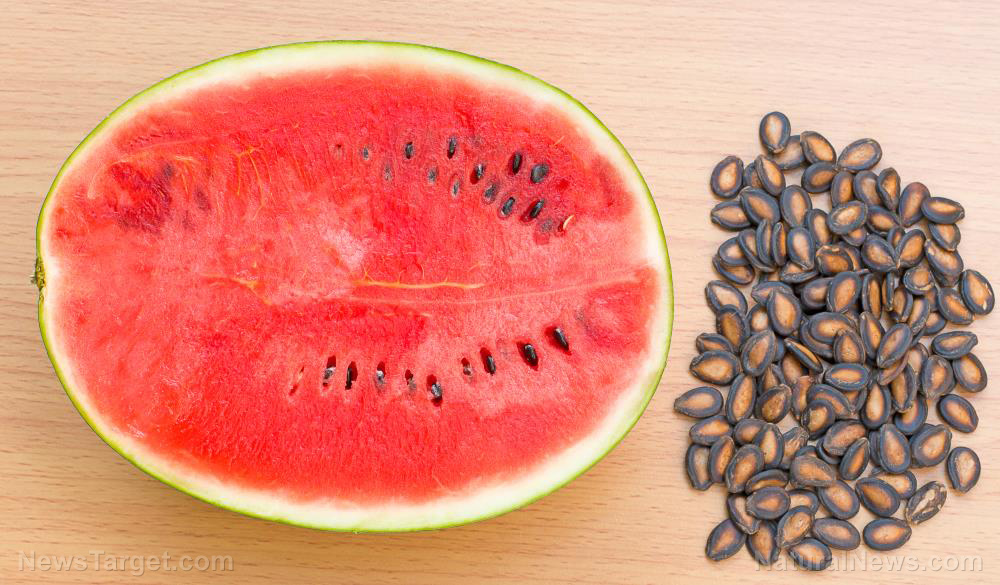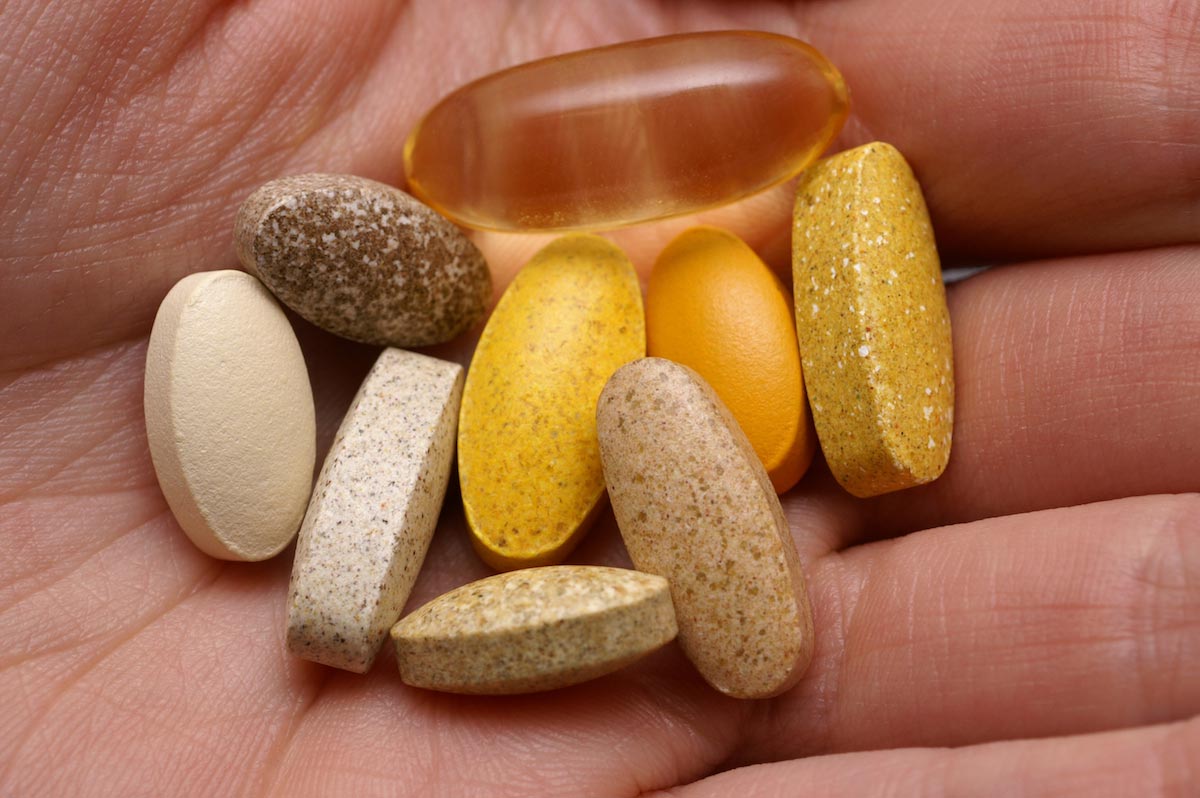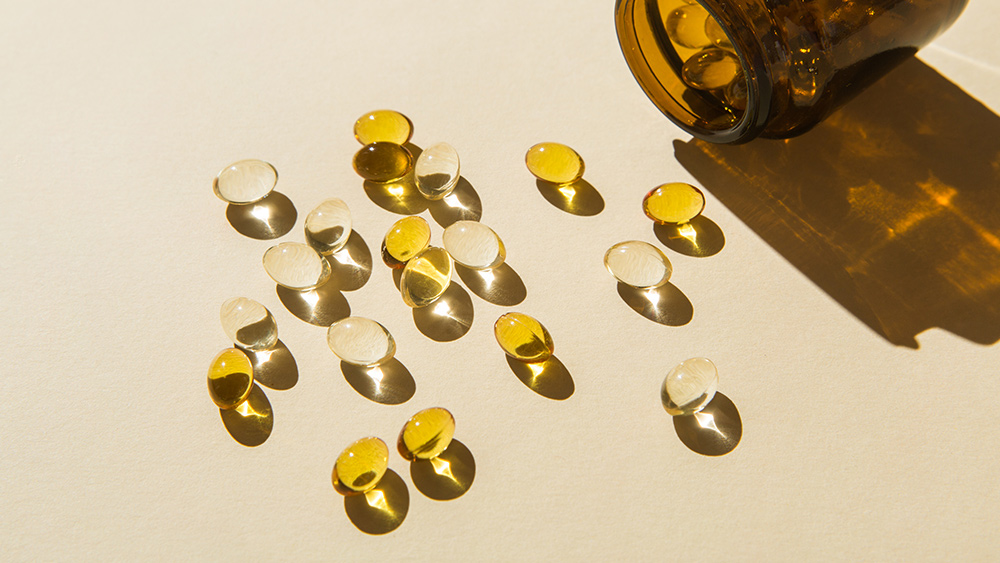Watermelon: A hydrating and nutritious superfruit
07/17/2025 / By Laura Harris

- Watermelon is packed with vitamins, antioxidants and electrolytes, supporting immunity, heart health and hydration.
- This fruit boosts hydration (92 percent water) and digestion, enhances exercise recovery, reduces inflammation and helps lower one’s risk of chronic diseases.
- Watermelon has a high glycemic index, so moderation is advised for diabetics.
- Enjoy watermelon fresh, in salads, grilled, as juice or smoothie, or in desserts like sorbet.
- Originating in Africa and now grown worldwide, watermelon is valued for its nutrition and refreshing qualities.
Watermelon (Citrullus lanatus) is more than just a refreshing summer fruit – it’s a nutritional powerhouse with a rich history and a multitude of health benefits. From its origins in ancient civilizations to its modern-day status as a beloved superfood, watermelon has proven itself as a versatile and health-supporting food. Packed with vitamins, antioxidants and hydration-boosting components, this superfruit deserves a permanent place in a balanced diet.
Watermelon’s journey began in ancient Africa, where wild varieties grew in the Kalahari Desert. Evidence suggests that it was first cultivated in Egypt over 5,000 years ago, with hieroglyphics and tomb paintings depicting the fruit as a valuable food and wat ber source.
By the 10th century, watermelon had spread to China, where it became a staple crop. European explorers introduced watermelon to the Americas in the 16th century, where it thrived in warm climates. Today, watermelon is grown worldwide, with China, Turkey and the United States being its top producers.
Nutritional profile and health benefits
Watermelon is 92 percent water, making it an excellent hydrating food. But its benefits go far beyond just quenching thirst.
Here’s a breakdown of watermelon’s key nutrients:
- Vitamin C
- Vitamin A (Beta-Carotene)
- Potassium
- Magnesium
- B vitamins (B1, B5, B6)
- Dietary fiber
- Antioxidants like lycopene, citrulline and cucurbitacin E
Thanks to its beneficial components, watermelon offers a wide range of health benefits beyond its refreshing taste. Packed with vitamins A and C, antioxidants like lycopene and essential electrolytes, watermelon supports optimal hydration, immune function, heart health and exercise recovery.
Here are watermelon’s known health benefits:
Hydration
Watermelon’s high water content gives it the ability to replenish lost fluids and electrolytes, especially during hot weather or after exercise. It also promotes satiety, helping curb overeating while keeping the body hydrated. (Related: 5 Refreshing health benefits of watermelon.)
Immune and skin health
A single cup of watermelon provides 14 percent of the DV for vitamin C, a key nutrient for collagen synthesis, wound healing and immune defense. Regular consumption can help reduce oxidative stress and protect against infections.
Healthy vision and immune function
The beta-carotene in watermelon converts to vitamin A, which is vital for maintaining healthy vision (especially night vision) and supporting immune cell function. It also contributes to skin health by promoting cell regeneration.
Blood pressure and muscle regulation
Potassium helps balance sodium levels, reducing the risk of hypertension and supporting proper muscle contractions. Magnesium further aids nerve function and muscle relaxation, potentially preventing cramps and fatigue.
Energy metabolism
Watermelon contains B1, B5 and B6, which assist in converting food into energy. These vitamins also support brain function and hormone production, keeping energy levels stable throughout the day.
Heart health and cancer prevention
Lycopene, the antioxidant responsible for watermelon’s red hue, has been linked to reduced inflammation, lower LDL cholesterol and a decreased risk of heart disease. Studies suggest it can also protect against certain cancers, such as prostate cancer.
Improved blood flow and exercise performance
The amino acid citrulline converts to arginine, which enhances nitric oxide production, improving blood vessel dilation and circulation. These actions help boost exercise endurance and reduce post-workout muscle soreness.
Anti-inflammatory effects
Cucurbitacin E, a bioactive compound in watermelon, exhibits anti-inflammatory properties that can help alleviate chronic inflammation linked to conditions like arthritis and metabolic disorders.
Weight management and digestive health
With only 46 calories per cup, watermelon is a guilt-free snack that provides fiber to support healthy digestion, prevent constipation and feed beneficial gut bacteria. Its high water and fiber content promotes fullness, supporting healthy weight management.
How to maximize watermelon’s benefits
While highly nutritious, there are few things to consider when eating watermelon. Watermelon has a high glycemic index (GI = 72), so individuals with diabetes should consume it in moderation despite its low-calorie count. Overeating the fruit may lead to digestive discomfort due to its high water and fiber content.
Watermelon’s thick rind offers some protection against pesticides, but conventional varieties may still contain traces of chemicals like chlorpyrifos or imidacloprid. Choosing organic reduces your exposure to these harmful chemicals.
While heavy metals are not a major concern, soil contamination (e.g., lead or cadmium) can occur in polluted areas, so washing watermelon thoroughly and choosing only those from reputable farms is advisable.
Culinary uses of watermelon
Watermelon is incredibly versatile. Here are some delicious ways to incorporate watermelon into meals:
Fresh and simple
- Classic slices – Chill watermelon as a snack
- Fruit salad – Mix it with berries, mint and lime
Savory dishes
- Watermelon feta salad – With cucumber, olives and balsamic glaze
- Grilled watermelon – Lightly charred for a smoky-sweet flavor
Beverages
- Watermelon juice – Blended with lime and mint
- Smoothies – Paired with coconut water and spinach
Desserts
- Watermelon sorbet – Frozen puree with honey and lemon
- Watermelon popsicles – With yogurt or coconut milk
Watermelon is a nutrient-dense, hydrating and delicious fruit with deep historical roots and modern health benefits. Whether eaten fresh, blended into drinks or used in creative recipes, it’s a functional food that supports overall wellness.
For the best quality, opt for organic watermelon and enjoy this superfood in a variety of ways to maximize its benefits. By incorporating watermelon into your diet, you’re not just indulging in a sweet treat – you’re nourishing your body with nature’s best.
This story is not medical advice and is not intended to treat or cure any disease. Always consult with a qualified naturopathic physician for personalized advice about your specific health situation or concern.
Visit NaturalNews.com, a great article source where you can learn about superfoods and their health benefits.
You can also try Brighteon.ai, an AI model created by Mike Adams, also known as the Health Ranger. This model is available as a free download to be run locally and is designed to help share and decentralize knowledge. By doing so, it aims to bypass censorship and empower people with knowledge.
If you’re looking for an uncensored video free speech website where you can openly discuss nutrition, natural medicine, ingredients and more, check out Brighteon.com and our two free speech social media sites, Brighteon.IO and Brighteon.social.
Watch this video to learn about the health benefits of eating watermelon every day.
This video is from the Health with Benefits channel on Brighteon.com.
More related stories:
Watermelon found to function as natural viagra.
Watermelon extract lowers blood pressure better than dangerous pharmaceuticals.
Eating watermelon rind may boost libido, provide other health benefits.
Sources include:
Submit a correction >>
Tagged Under:
food cures, food is medicine, food science, Fresh, fruits, functional food, grocery cures, health science, natural health, nutrients, organics, phytonutrients, watermelon
This article may contain statements that reflect the opinion of the author





















